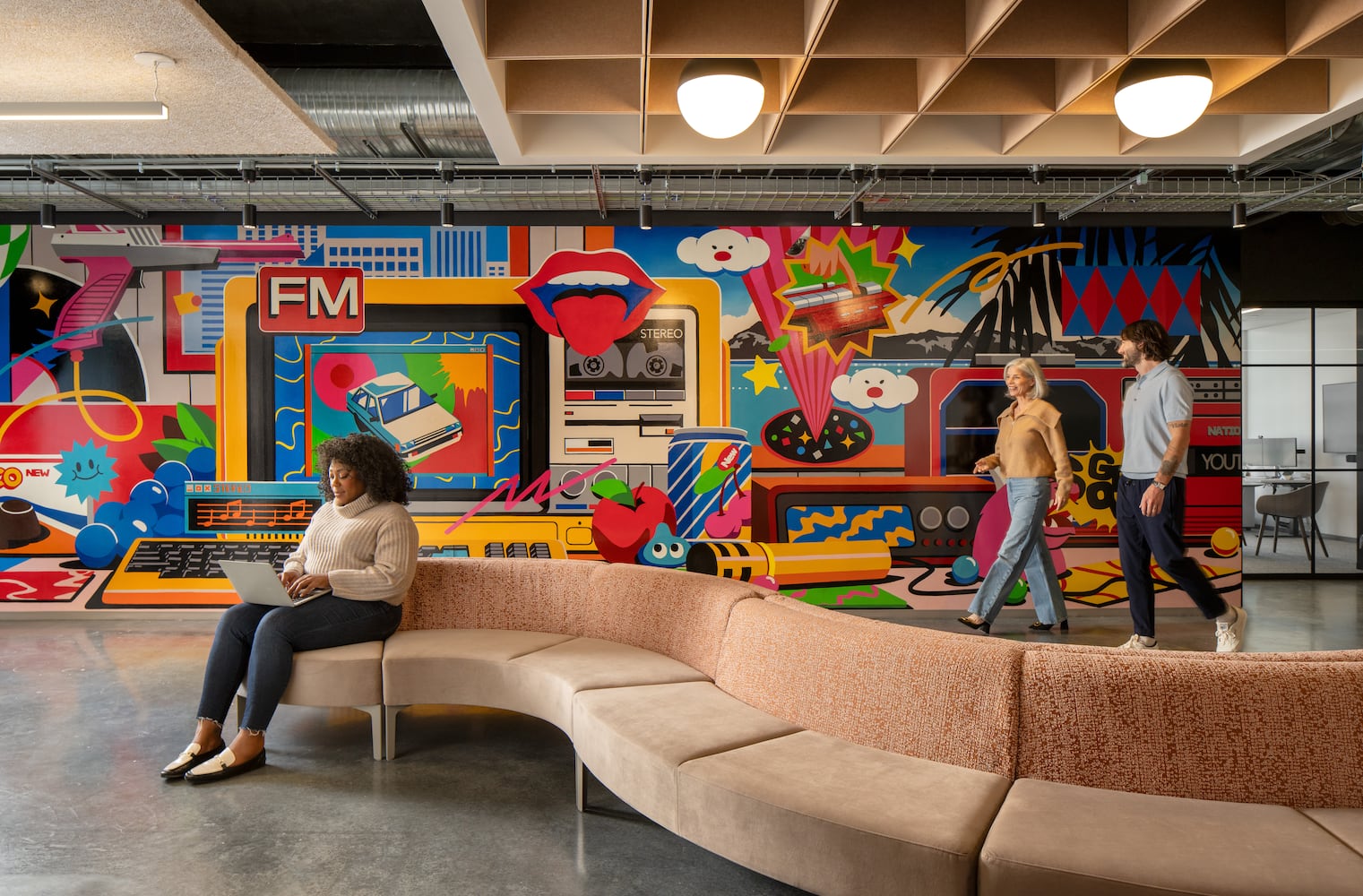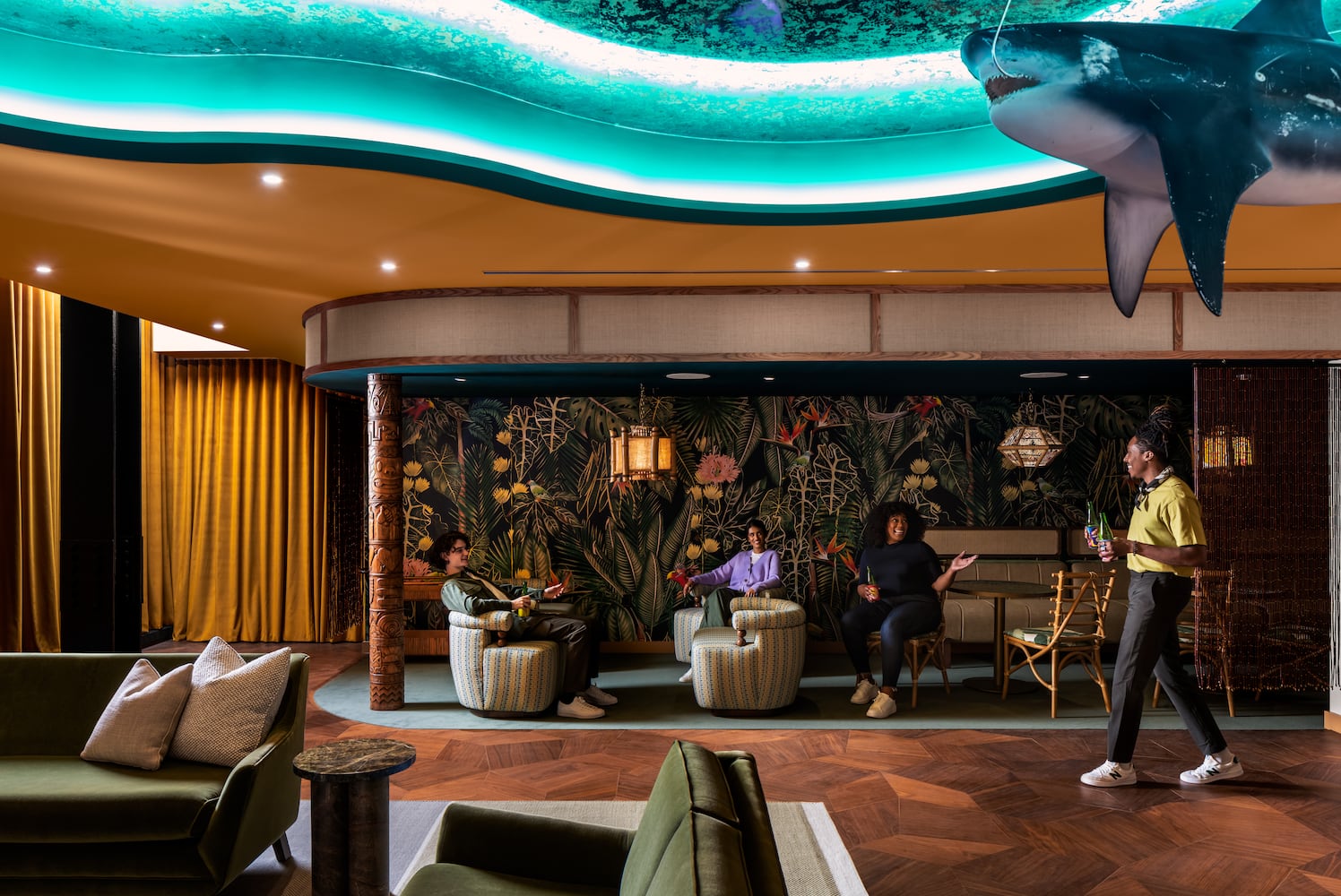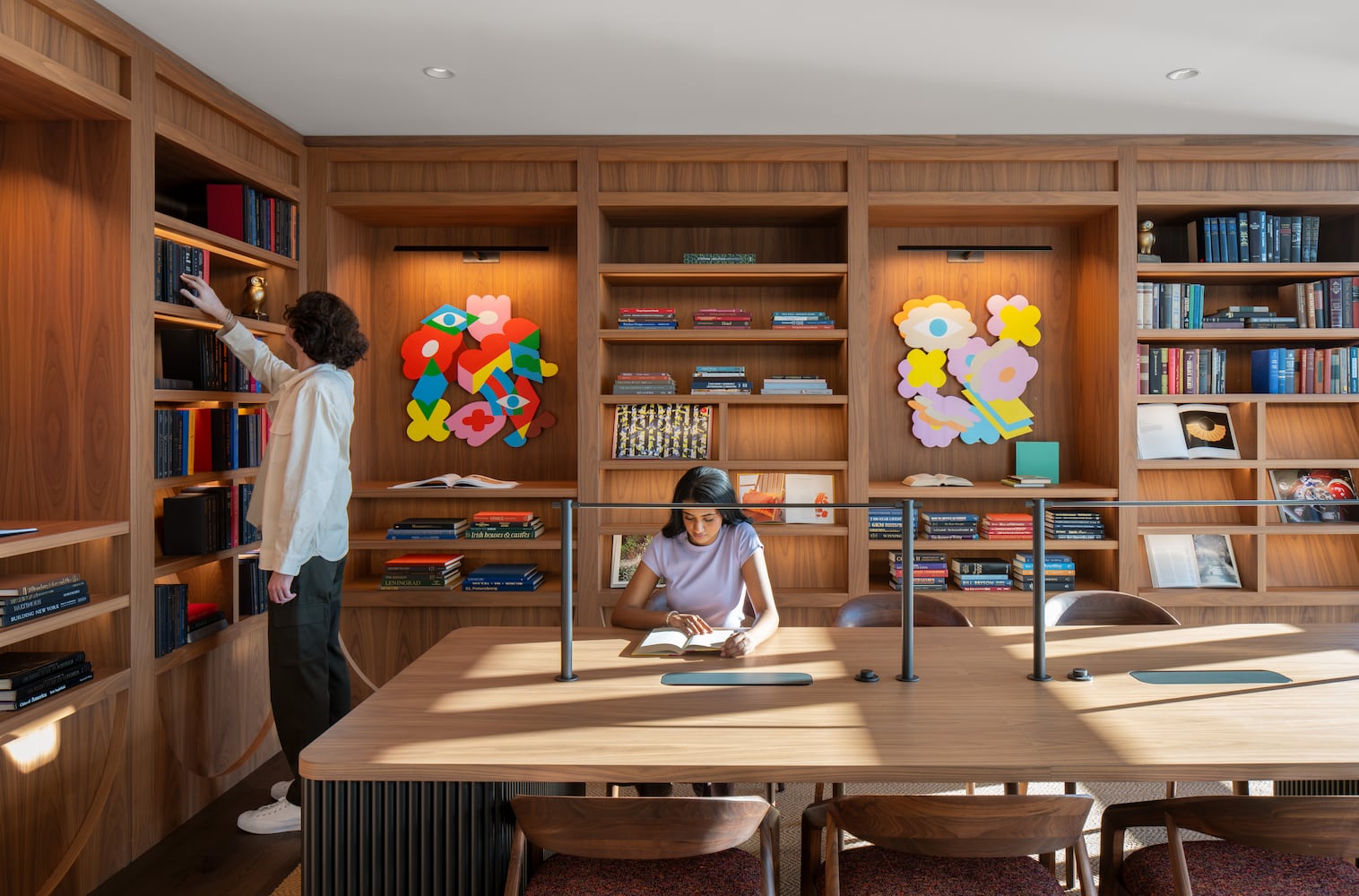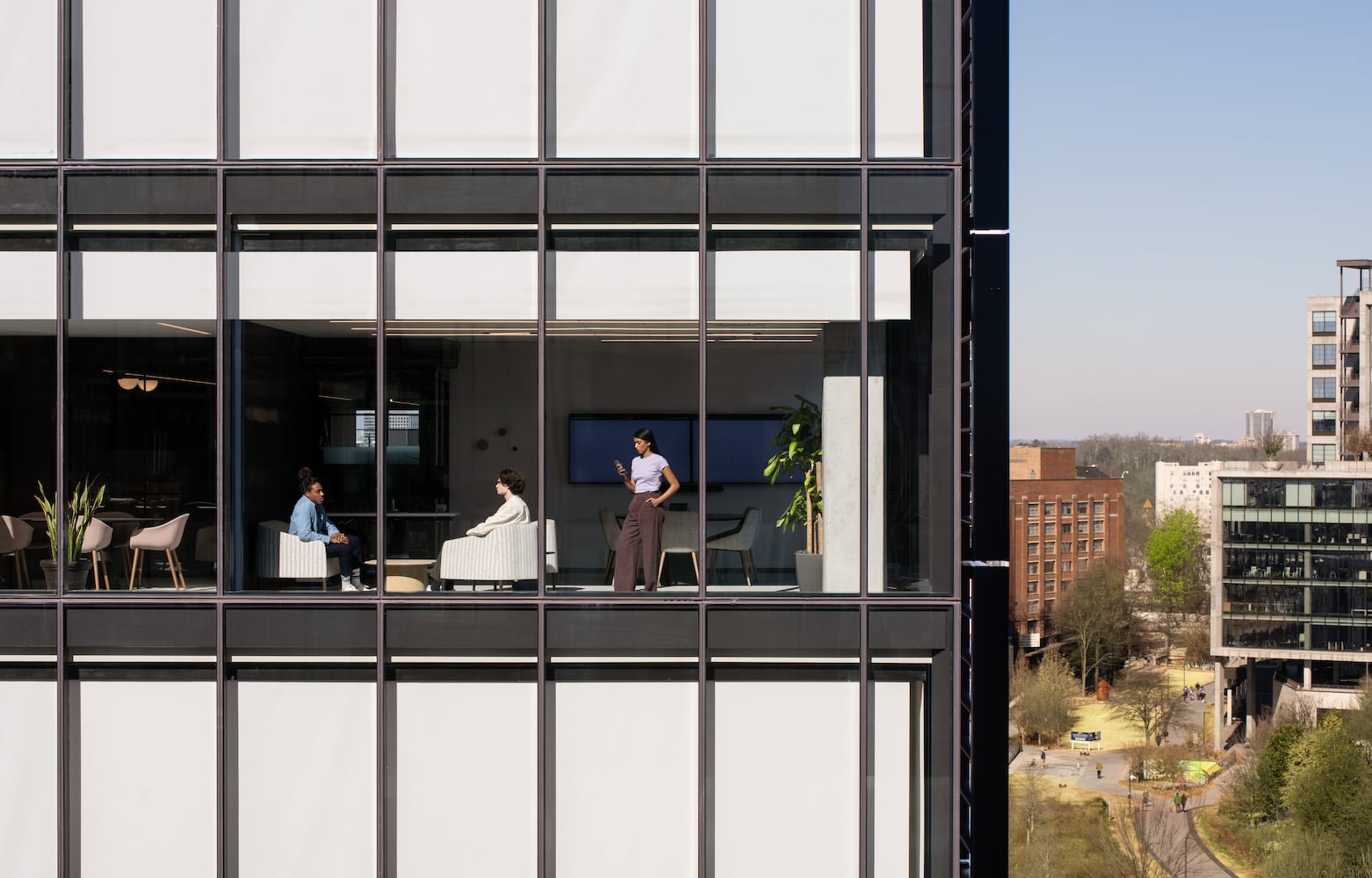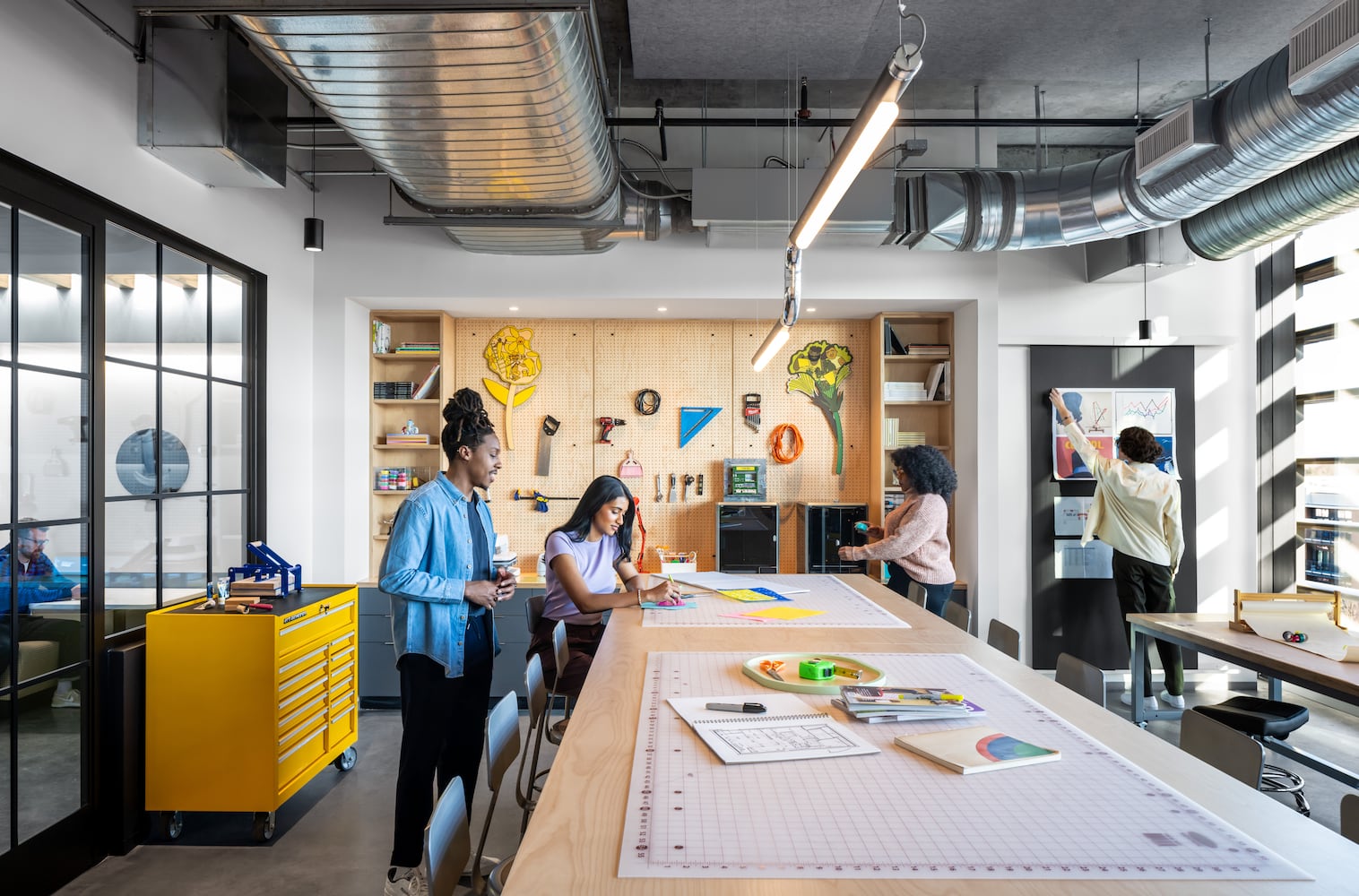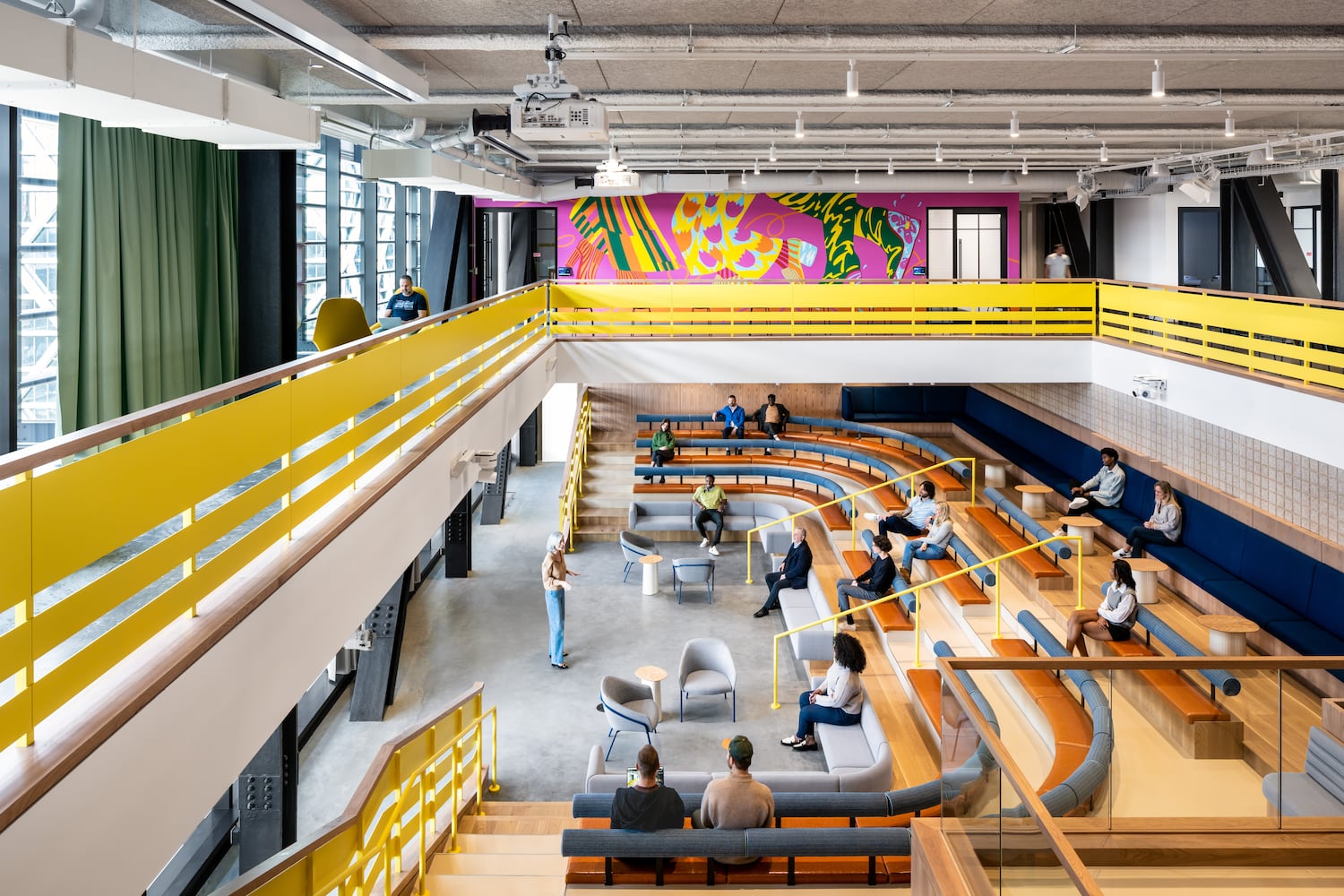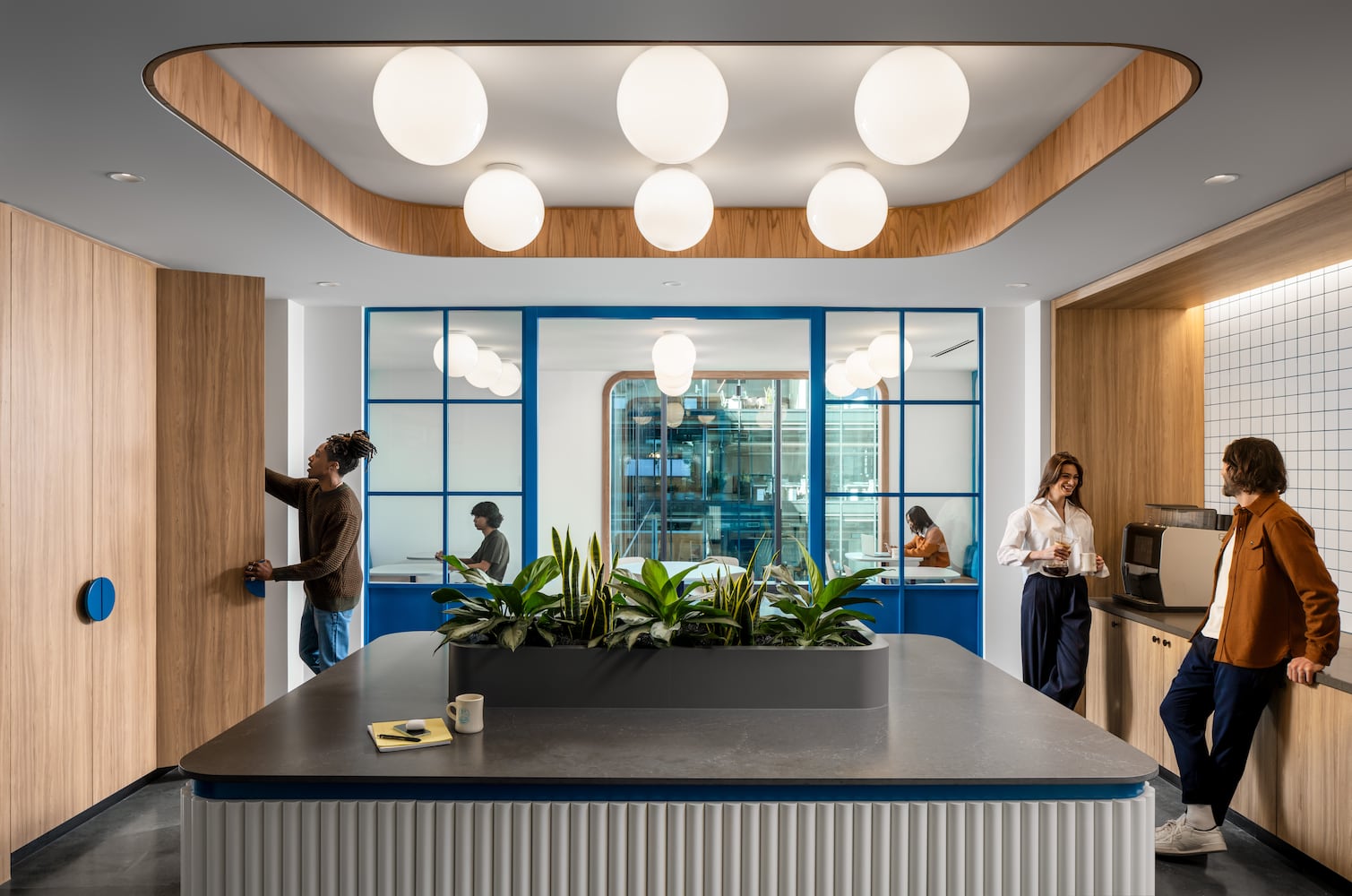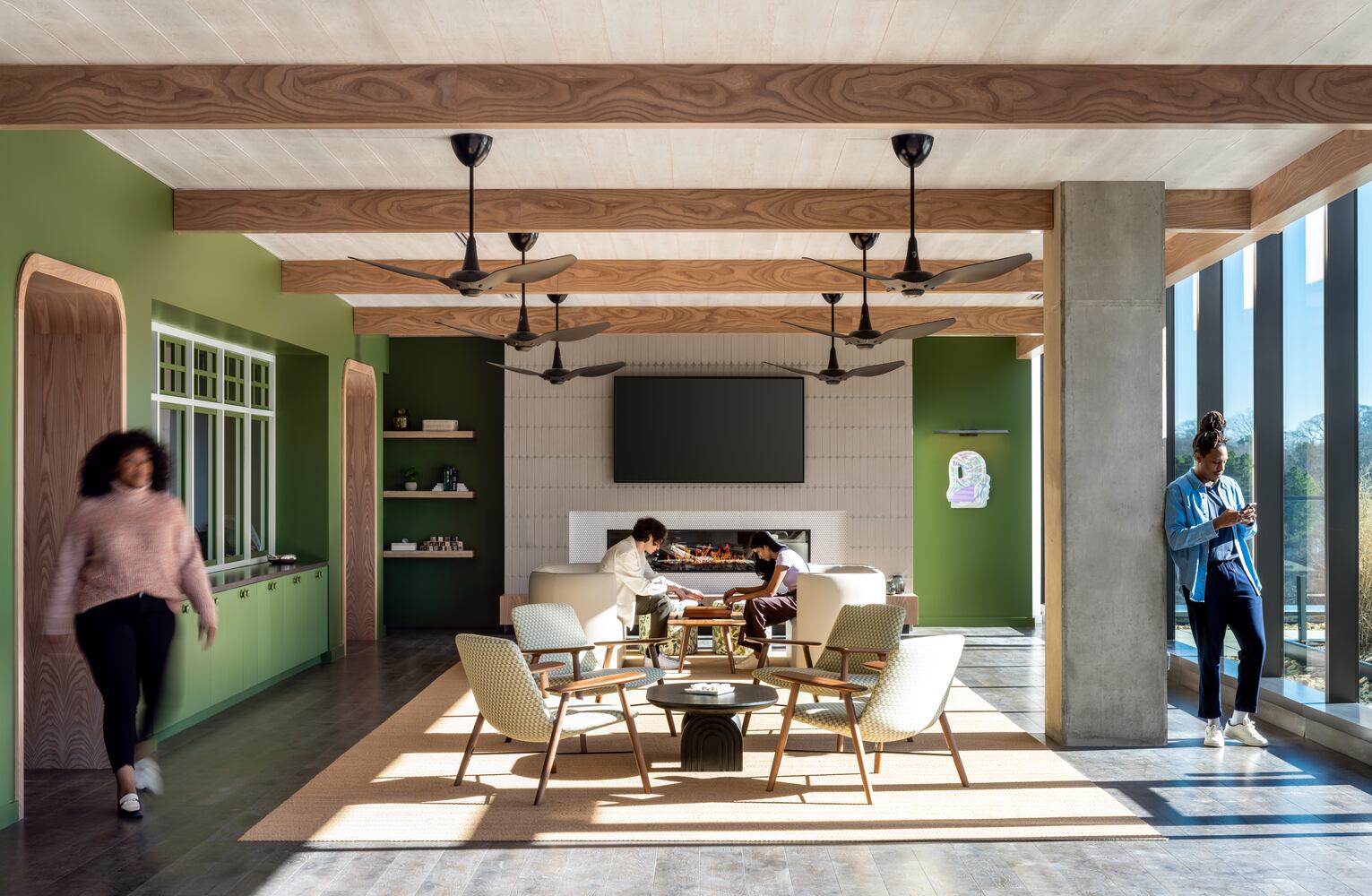The ability to alter video call backgrounds has changed the vibe of work meetings.
You can give a presentation surrounded by a tropical island scene, or maybe the overlay of a refined study will add some sophistication to your virtual interview.
If a tiki-themed room or a picturesque library seems like a great backdrop to spice up work, you don’t have to scroll through Zoom’s options — you can just go to Mailchimp’s new Atlanta headquarters.
“We’ve had people comment that it looks like a fake Zoom background,” Ashely Wilson, Mailchimp’s senior manager of employee experience, said inside the building’s library-themed workspace. “But no, we’re in the office!”
Mailchimp, one of Atlanta’s largest startup successes, held a ribbon-cutting ceremony Wednesday for its new offices, roughly 360,000 square feet of Beltline-adjacent space designed as a white-collar worker’s playground. Dozens of murals line the walls, there are menageries of seat choices and amenities are omnipresent to tempt employees away from working from their couch.
The home-grown email marketing organization, which was acquired by Intuit in 2021 for $12 billion, is opening its headquarters during a tumultuous time for the office market. The COVID-19 pandemic changed how employees get work done, with many companies now struggling to figure out how to balance flexibility, productivity and the money spent to maintain their office footprints.
Credit: Jenni Girtman
Credit: Jenni Girtman
Christian Widlic, group creative director at Mailchimp, said their top goal was to meld the comfort of remote work with an office’s efficiency and spontaneity.
“We’re competing with people’s homes right now,” Widlic said.
Mailchimp announced in late 2020 that it would vacate its Ponce City Market offices to move a quarter-mile to a larger space within New City Properties’ 12-acre Fourth Ward development. Mailchimp leased the bulk of the project’s three office buildings, which will eventually become Intuit’s Southeastern hub with up to 3,500 employees.
Mailchimp co-founder Dan Kurzius said roughly 800 workers are currently based out of the completed offices, with company policy expecting them to report in-person at least twice a week. Atlanta-based UPS made headlines earlier this year by requiring all workers to come to the office five days a week, joining a growing list of companies rolling back remote work policies.
Kurzius said a lot of work was done to incentivize employees to choose to come to the office, from locating mere steps away from the Beltline to offering amenities they can’t get at home. Once workers toured the space, Kurzius said he heard the words many C-suite executives are dying to hear.
“I’ve overheard people say repeatedly, ‘I think I’m going to to come into the office more often,’” he said.
Atlanta set records last year for its glut of empty offices. At the end of December, nearly a third of all office square footage in metro Atlanta was available for rent, according to real estate services firm CBRE. Real estate experts said uncertainty over office utilization has paralyzed many companies, with several choosing to seek sublessees to take over their unused space. Older and drab buildings have especially struggled to find tenants, with some tower owners facing loan distress and foreclosure.
Mailchimp’s headquarters, which was designed by architecture firms TVS, Studio O+A and Mailchimp’s in-house creative agency Wink, aims to be anything but dull.
The tiki-room is decked out with bamboo chairs, a tropical plant mural and a dangling shark figurine. Breakout rooms are themed like storefronts with their own unique logos. Outdoor porches give sweeping views of the rapidly changing Old Fourth Ward neighborhood. A “maker room” allows for workers to tinker with 3D printers and other crafty projects.
Credit: Jenni Girtman
Credit: Jenni Girtman
Kurzius said he wants employees to soak in the variety of settings designed to spark their creativity. He said it’s an iteration of prior attempts to generate the water-cooler conversations of old, a tactic technology companies have touted for decades.
“We didn’t really do a whole lot of new things in the space as much as we took old efficient ideas and evolved them,” he said.
About the Author
Keep Reading
The Latest
Featured
